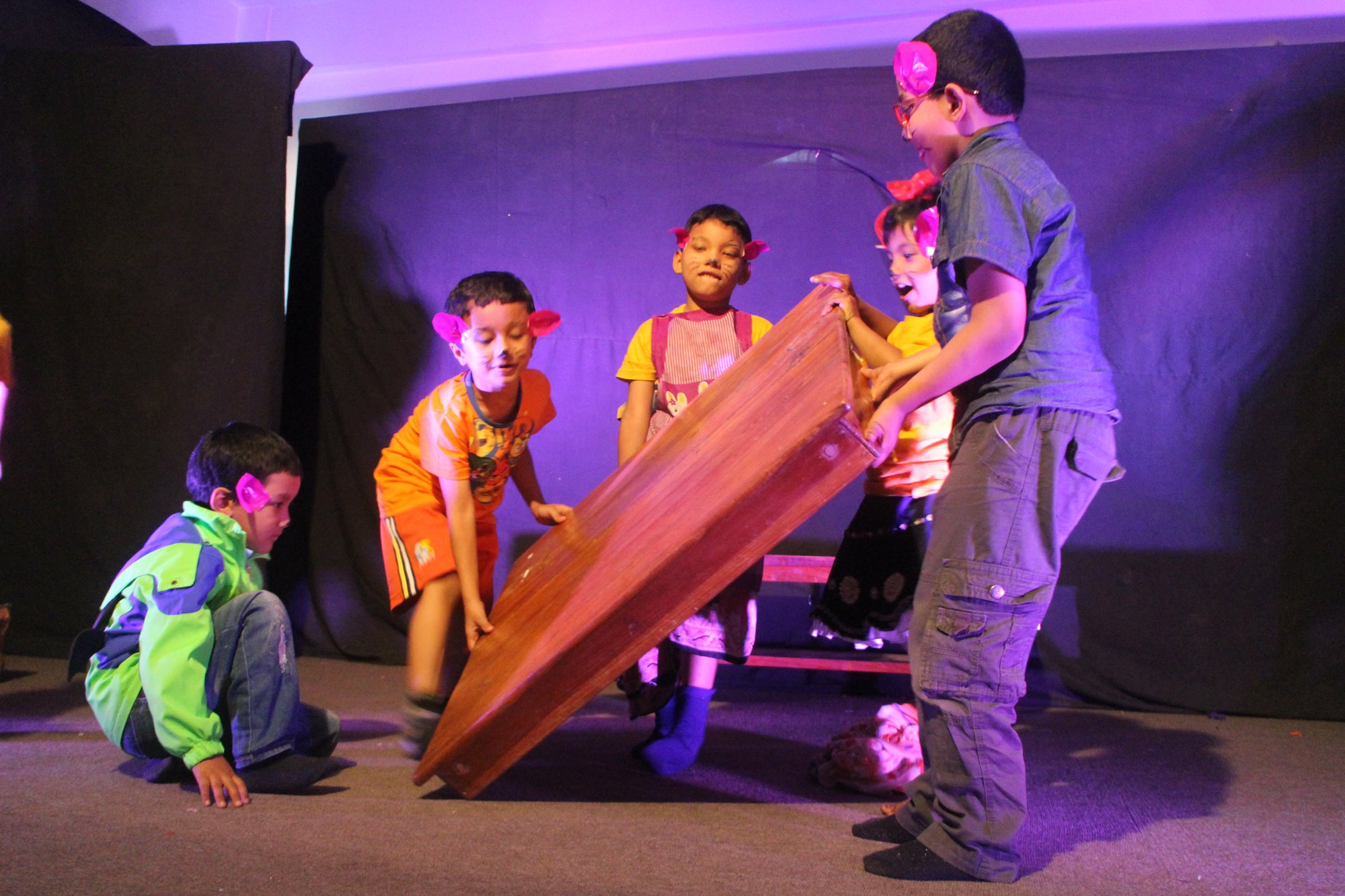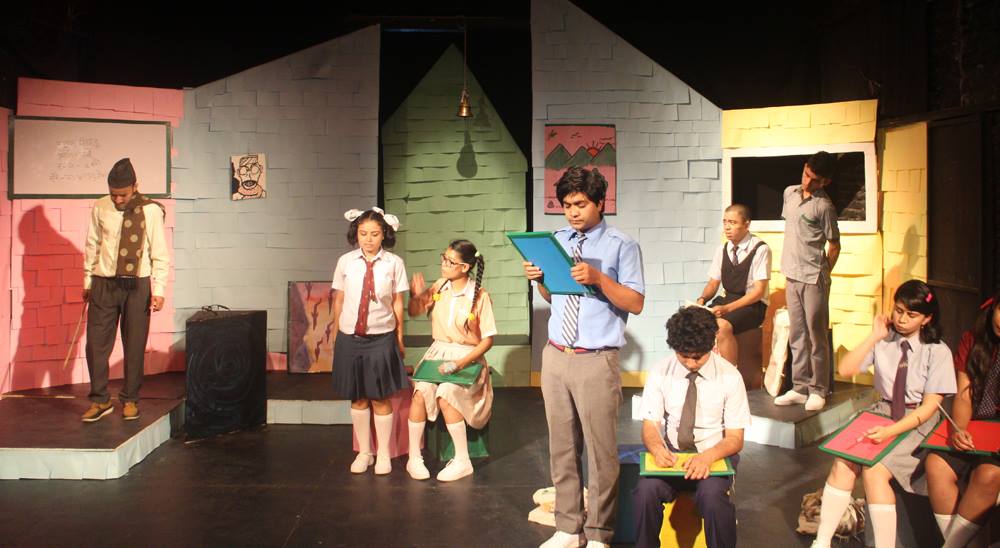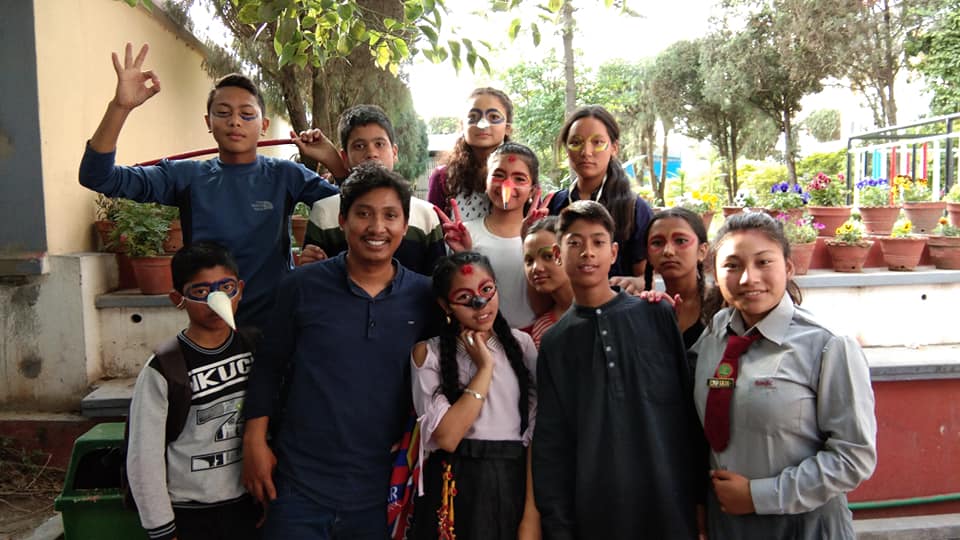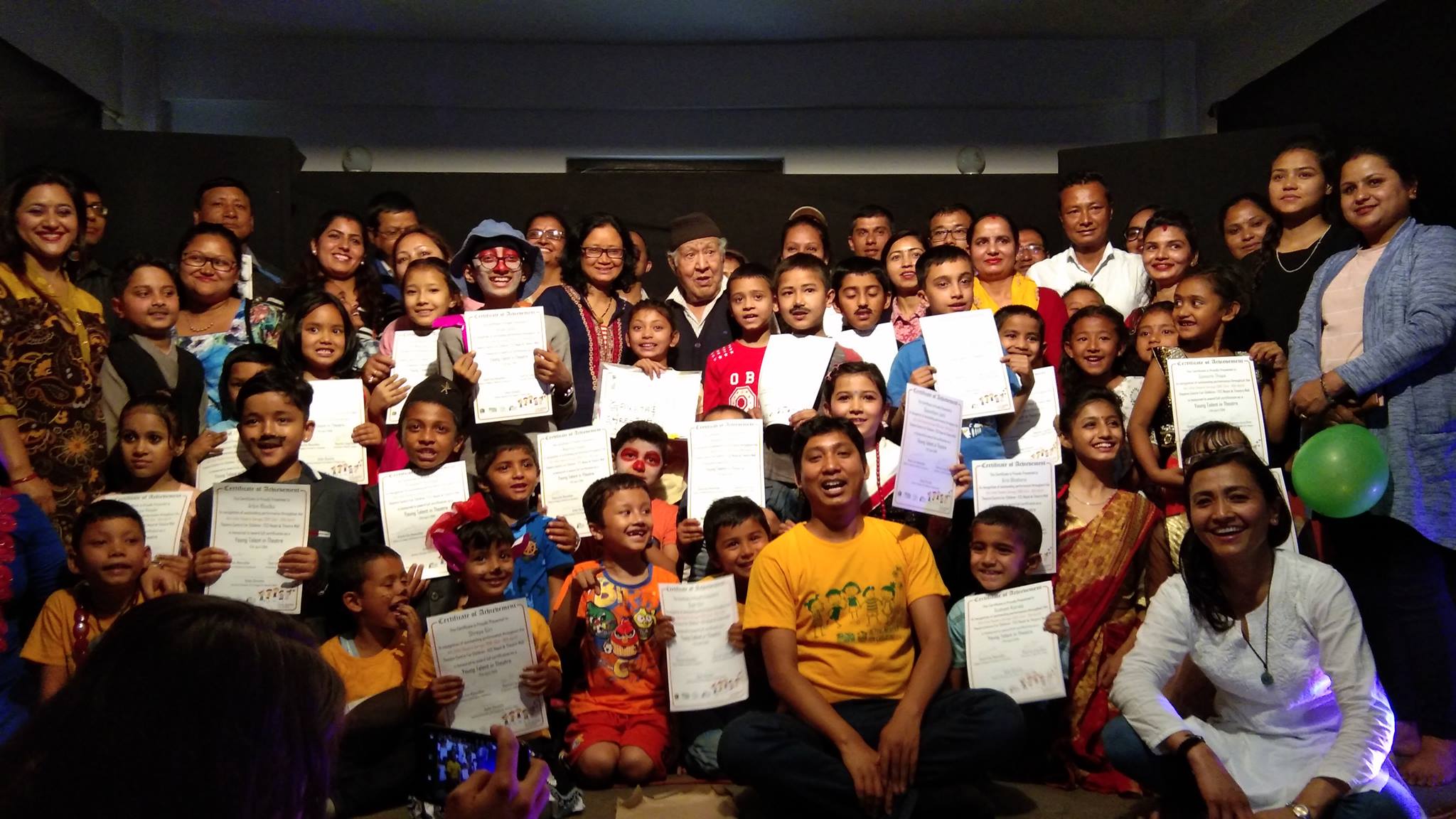Children Should Be Our Priority – Kedar Shrestha, Children Literature Activist, Social Changemakers Blog Issue No. 10
You send your children to school in the hope that they learn how to read and write amongst other things. But Kedar Shrestha thinks that this is not enough for children to get a proper education. He is a theatre activist and children’s book writer with 6 books in his name of which more than 1 Lakh copies have been distributed all over Nepal. Through his activism on drama and children’s literature, he has reached more than 1500 children and organized half a dozen of children’s drama festivals. He also works as a drama teacher at various schools. The Catalyst met with him to find out more about his outlook on children’s education in Nepal and journey as a children’s literature activist.
Can you tell how you came to the field of theatre and children’s literature?
I came to the theatre as a literature-loving person. During my school days, I was involved in children’s literature, not as a writer but as a reader. There was a child magazine named Bal Koseli, since 1991, with chief editor Santa Das Manandhar. He is considered to be one of the pioneers of children’s literature in Nepal. We had made a ‘Bal Koseli’ reading group. We used to visit his house at 7 am every Saturday. He used to recite stories to us. I once wrote a reader response to ‘Bal Koseli’. After reading that, one of the members of the club came to my school to take me to the club. All the club members used to be the editors of the magazine. We used to finalize the content from our side and Santa dai used to do the final check.
Listening to the stories from Santa dai was a great experience. By listening to him, I also learned writing. He not only told stories, but also spurred us to write the same story in our own words and submit it to him the next week. In this way, he developed our writing skills and some of my stories were published in ‘Bal Koseli’ that way.
When I was reading in 12 class, I translated and published Leo Tolstoy’s children’s dramas into Nepali. Santa dai told me to do that, because otherwise I would not have done it. We used to have a discussion during the translation phase and Tolstoy’s descriptive writing helped me to understand about children and child psychology. He showed how small things can affect children’s mind. I myself was trying to understand my own psychology. I knew the importance of children’s literature and later I joined Sailee Theatre in 2006 which organized the first Children’s Drama Festival in Nepal.What is the situation of children’s literature in Nepal? Are the children of today getting the enabling environment they need? How good is our reading culture?
I say it is not that much promising. People hardly show respect towards activists who are working for children. We have a poor culture of doing things for children. I frequently visit some of the schools where I myself am involved. I see two kinds of aspects here. Compared to the past, books dedicated to children are increasing. However, efforts to bring them close to books are declined. Children are diverted towards various things. Hence, they lack serious reading. When I was a child, I read a lot of children’s books that helped me to read other bigger books. Children nowadays lack such hunger of reading. Some children read not because they want to read, but because they want to be inside some of the digital reading groups.
Reading culture is reciprocal to both parents and children. I would say, parents, have very little time to read nowadays. The new social structure of the single family is the major reason. In the past, even if a child did not read, he/she used to
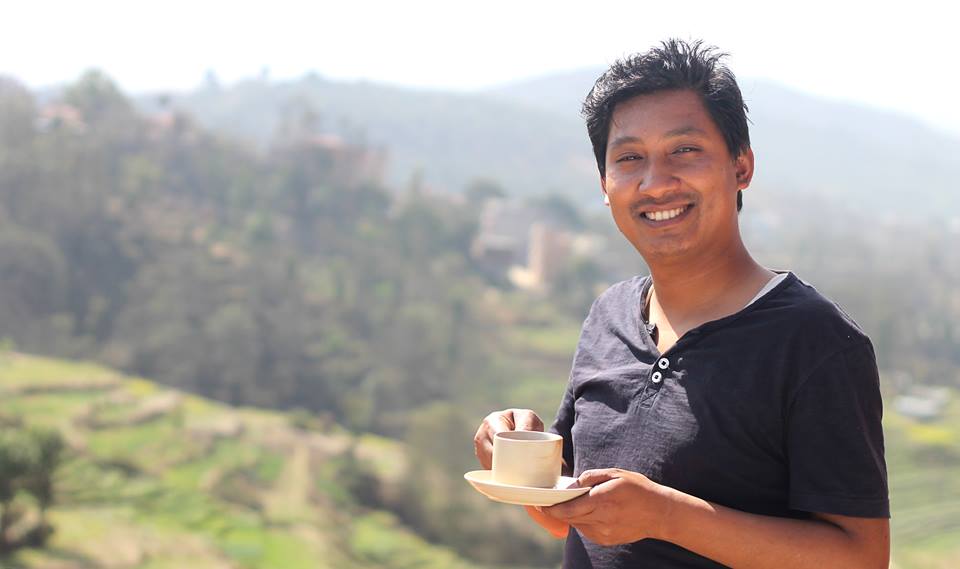
listen to stories from their parents or grandparents but that tradition too has gone.
You said you had a child-friendly environment in your childhood that shaped your understanding of children. How do you see the current situation of Nepal in this matter?
Yes, I know child psychology, because I remember my elders treating me well during my childhood. Now I see children and parents are detached most of the times. They are put into a hostel, because their parents have no time to spend with them. This distance is the problem, because it brings the gap between them. Parents think their children are reading, but that may not be the case all the time. I entered into the field of literature, because I met Santa dai and got encouragement from him. Children of today lack persons like Santa dai nearby them. If we provide them with a good reading facility and conduct dedicated activities, they will be to make them good readers. We can shape their habit, but for that we should first develop our own habit of reading.
How can we be clear about their interests? Why is it important for parents or teachers to understand what their children want? How do you evaluate our own effort?
I think parents are more aware of it. A few years ago, parents used to see children as the tool to fulfill the dreams that they couldn’t accomplish in their lives. For all of them, their children should top the class, but nowadays some parents exist who don’t care about the grades of their children. Rather they care about the things their children learn at school. They want their children to be practical. I think every parent should learn from this, but very few think in that way. The condition of primary schools in rural areas is the worst because there is an imbalance of teachers and students. The teaching methods do not match with children’s psychology and require a massive change.
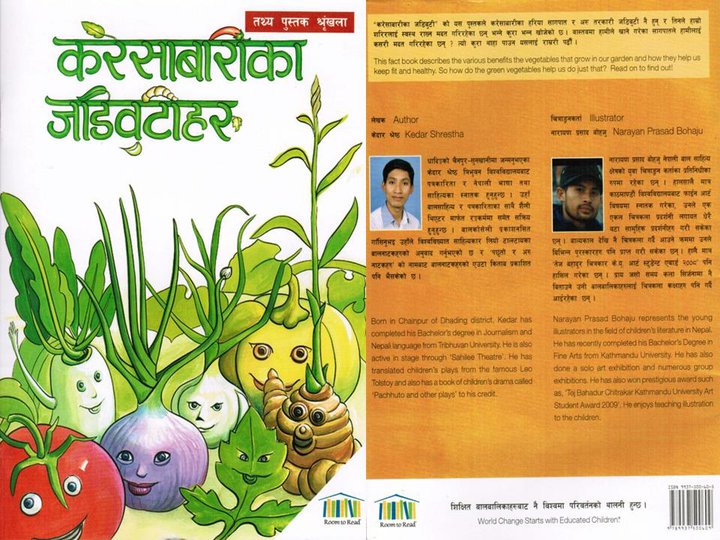
What is children’s psychology? How should we care for children?
I am not a psychologist. But as far I know, children psychology varies according to the person. What I am trying to say here is, that there are certain psychological traits of children that are common and everyone should try to understand these. Most children want to play and that is natural. Instead of stopping them from playing, we should develop a society where they can play and learn together. We are putting children under a lot of pressure. I go to several schools to teach theatre. After giving some basic training on drama and acting, I let them enjoy their own creativity. Even if I am late, they start the rehearsal on time. And they surprise me every time with their improvisation. If they understand what they need to do, they are very sincere. I think every parent and teacher should understand this.
What drama can teach to children? Why should children do drama?
Drama can teach them good behavior and help them in their personal development. It includes reading, writing, playing, dancing, music, and painting altogether. It teaches them to have patience while following their passion. I am a person from the theatre, but in Nepal, we are yet to develop a theatre culture.
Whatever we see is only the craze. If we can teach theatre to children, the future of Nepal theatre will be in safe hands; either as the form of audience or artist. Abroad, theatre in schools is essential. Unless students attend theatre, they can’t graduate from their school. I think we need to work on this in Nepal. I even do theatre class during the exam period, because extra activities don’t hamper in their study.
You have written six children books including the drama. What is the reason behind this? Why children need a character in the Nepali context to which children can relate?
Again, this is related to our reading culture. Firstly, writing is my passion. Apart from that, why I am doing this, is because our kids lack sufficient reading content and the existing ones also lack sufficient depth. I am not saying I have found that depth, but I am happy working and improving this. I try to avoid certain generalizations in existing on children literature. Many of our children stories try to overload moral lessons. But I think very light issues need to be included in children literature. One of my stories narrates a meeting of vegetables where different vegetables tell their problems. In another story, a child paints a mountain and fills it with black color. When his mother asks why the colour is black in spite of green, he replies saying that the painting is set in the night.
Children’s literature should cover serious issues in a form that children can easily understand. In some of the rural parts of Nepal, a child walks for more than 2 hours to reach to school and 2 to return. If you narrate this story in the context of Europe, it would seem like one from ancient history, but in Nepal it is real life. We need some real stories that can help children understand our society and struggle that we are going through. It could be the story of a boy whose mother cannot pay his monthly school bill or a girl whose parents want her to marry during her school days. These things are not light, but as I said earlier children’s literature is not only for light things. Our children should understand different parts of our society and struggles through the stories we write and through the characters we chose.How does reading about these things shape the future generation of our society? How would read each other’s struggle help children to unite emotionally in federal Nepal?
If we present a home in a story with a struggling little girl living there it becomes the house of everyone. Children will be empathetic towards that. More than anything, we need empathy in this current context, only then we can accept each other’s existence.
Children should be given the first priority by the government. Unless we invest a large amount of our budget in educating our children, we can’t develop. Society should give priority to children. We live in the philosophy of ‘Respect the elders and love the children.’ I say this should be changed. We should respect both. We should treat children not only as a person to love, but also as a person to respect. We should give them dignity, so that will act as responsible human beings. Actually, we should love elders and respect our children. We should give them self-identify and help to explore their own future.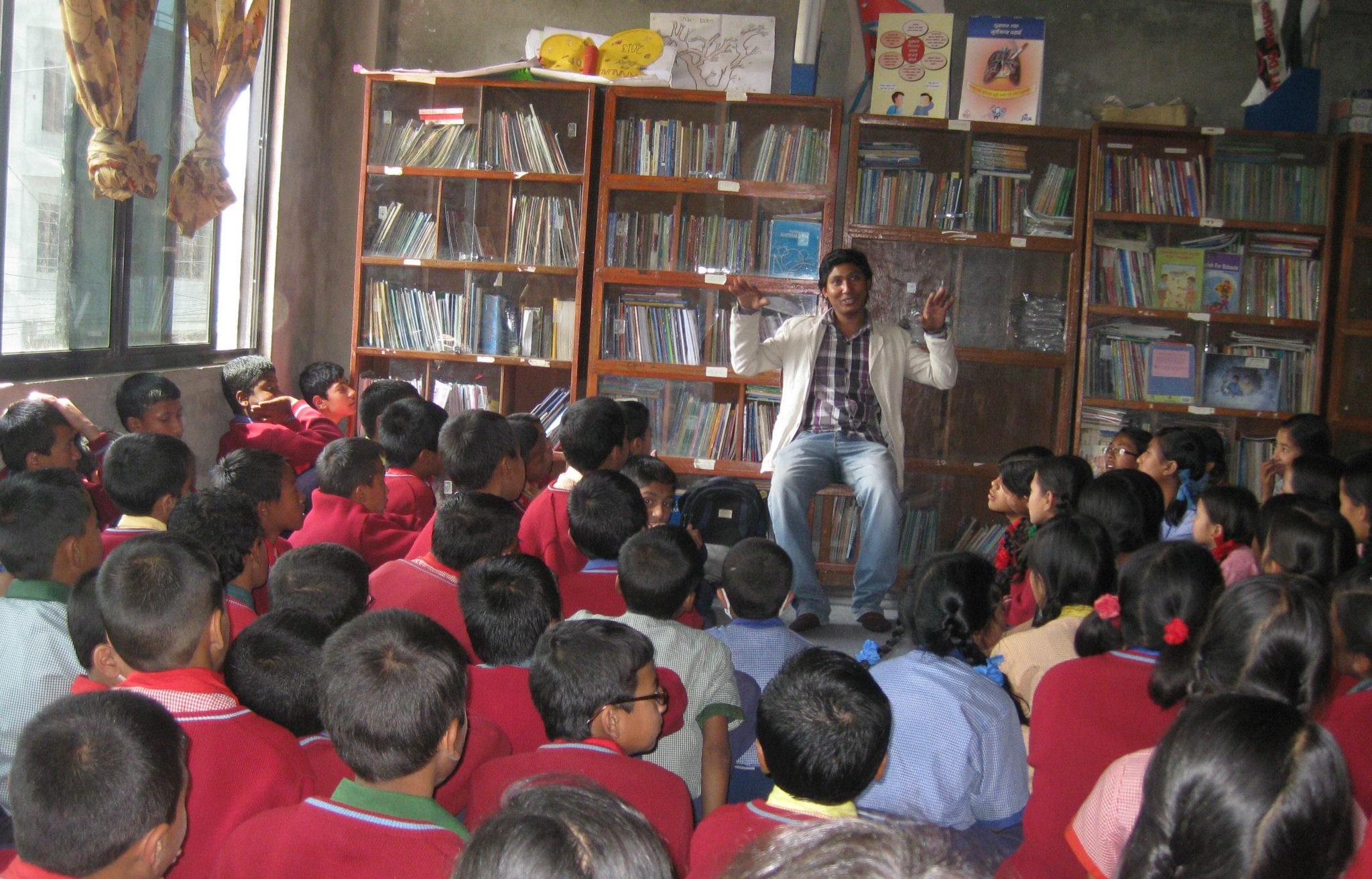
In this context, your drama ‘Upiyako Nibandha’ (The Essay of Flea) portrays a boy who all the time writes about a flea. Even when the teacher tells him to write about the cow, he mistakenly keeps writing about a flea. What is the reason behind choosing this story and performing this drama? What are the other issues being addressed by this drama?
Actually, this is a joke that is famous in Nepal. When I heard it for the first time, I also laughed. But when I asked why question to myself and tried to see it from boy’s perspective, I found a serious flaw in our education system. The student commits the same mistake every time, because teacher fails to properly guide him. Actually, it was the teacher who first made him memorize the essay on a flea. Therefore, he thinks he should not miss the flea in his writing. The teacher never thinks why he was doing so, rather he punishes him every time.
Through this drama, I wanted to raise questions about our existing education system that places emphasis on parrot reading. Rather, we should allow them to think freely and be creative. Had this joke been from a children’s perspective, maybe the teacher’s weaknesses would have been the centre of attention.
How do you think a drama focusing on children’s issues brings social change?
I think all the different genres of art do the same thing. They make people think. Because drama is live and performed in front of the audience, it has a greater chance to capture the audience’s empathy. If one person’s thinking of behaviour gets changedas a result of seeing my drama, then I hope that this will have a ripple effect and he/she will make their family aware of how their children are being taught in school. Most people think that sending their children school is sufficient for their education. I say they should be conscious whether their children are getting the right education or not. If the audience of my drama is a teacher, after watching the drama, he/she might decide to self-analyse himself/herself before his/her next class. It is very hard to observe and measure social change, but I am optimistic that drama can be an eye-opener to all.
You said children are not treated well but along with that person working for children are not taken care of. Why is that happening?
In our society, we call them ‘Baccha’ or ‘Fuchhe’ that signifies that they are inferior and they know very little. Those who are writing for children or working for children should get help from the parents in dealing with children’s issues together. Children’s issues are not issues that should be raised by NGOs only, rather they should be raised by parents and teachers themselves because they live most of the time around them. As I said earlier, children should always be the major priority. When we start thinking of children as a major priority, our understanding towards their development and thinking pattern will improve drastically. That will be beneficial for the whole country.
To the children who are creative, and to the parents who are around them, what message you want to deliver through this interview?
All I want to say is, dear friends, read if you want to improve yourself. And to every parent, create n environment in your house where the creativity of your children can flourish. If you buy a cake for your child, don’t forget to buy a book with the cake. It will help them develop a habit of reading which is the best investment you can make in your child. Or read a book yourself and then give that to children. It is just like you taste the quality of the food before feeding your children.
